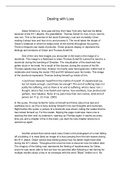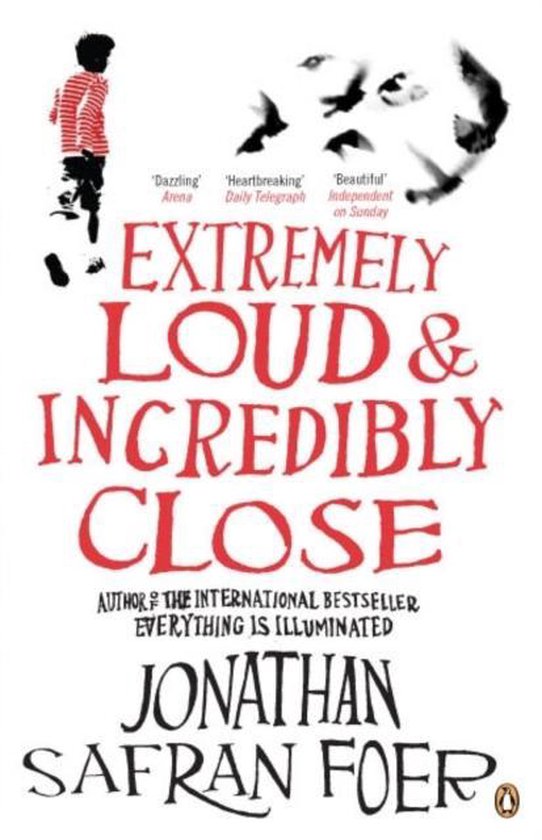Dealing with Loss
Oskar Schell is a nine-year-old boy from New York who had lost his father
because of the 9/11 attacks. His grandfather, Thomas Schell Sr, has in turn, lost his
own son. This is the premise of the book Extremely Loud and Incredibly Close
making it about loss and how to try and process it. The novel takes the shape of
Oskar’s notebook in which he keeps track of the events throughout his journey.
There is frequent use made of pictures. These pictures display or represent the
feelings and emotions of Oskar and Thomas Schell Sr.
One of the very first images you encounter in the book is the image of a
doorknob. This image is a flashback to when Thomas Schell Sr burned his hand to a
doorknob during the bombing of Dresden. The visualization of the doorknob has
gotten stuck in his head. As a result of this trauma, during the course of his life
Thomas speaks less and less. Instead, he mostly uses hand gestures, written text in
notebooks and having the words YES and NO tattooed upon his hands. This image
of the doorknob represents Thomas locking himself up inside of him.
I could have released myself from the marble of myself. I’d experienced joy,
but not nearly enough, could there be enough? The end of suffering does not
justify the suffering, and so there is no end to suffering, what a mess I am, I
thought, what a fool, how foolish and narrow, how worthless, how pinched and
pathetic, how helpless. None of my pets know their own names, what kind of
person am I? (p. 33, Foer, 2005)
In this quote, Thomas Schell Sr looks at himself and thinks about how bad and
worthless he is, as if he is busy locking himself in his own thoughts and memories.
Right before this quote, a picture of a doorknob was shown, telling the reader that he
has locked himself up. For the reader, flipping the page could also mean one is
opening the door and, by extension, opening up Thomas again. It seems as every
time you end a chapter of his in the book, you start his new chapter where he is
opened up again.
Another picture that comes back many times is the photograph of a man falling
off a building. It is most likely an image of a man jumping from the twin towers during
the 9/11 attack. Oskar cannot stop thinking about how his father might have died
during the 9/11 attack. Throughout the novel he tries to discover how his father died.
The imagery of the falling man represents the feeling of hopelessness for Oskar,
since he was never able to find out how his dad died after following a red herring for
multiple months about a key in an envelope with the word “Black” written on it. He






